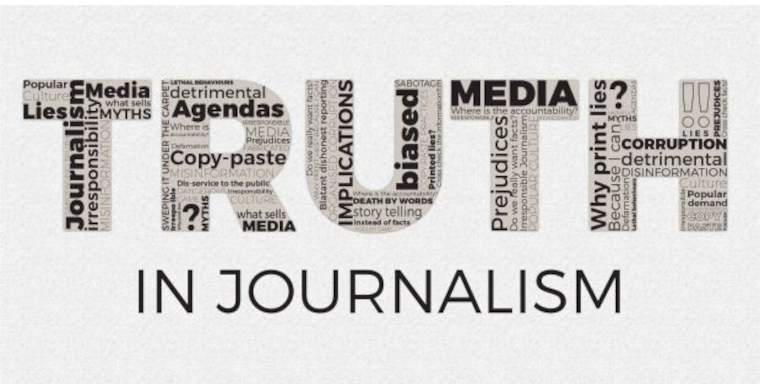How Journalism Saved Evangelicalism in North America
By David W. Virtue, DD
www.virtueonline.org
April 20, 2022
Journalism and journalists in general get a bad rap. Some of it is justified, but some of it is not. A Gallup poll found that just 21 percent had a "great deal" or "quite a lot" of confidence in newspapers. For TV journalism, the number was even worse: 16 percent. Of the 16 institutions Gallup asked about, only the U.S. Congress had lower scores.
In fact, the low esteem which many people hold journalism has caused many to give up on the craft. They say that journalism is part of the problem. More than that, they say that journalism is the source of the problem. It is not hard to find evidence for that conclusion. Fake news, cable news punditry, and well-financed disinformation campaigns masquerade as journalism so convincingly that we have come to believe that it, in fact, is journalism.
But it is not true in every instance. Far from it. President Warren Smith of MinistryWatch in an address to the Evangelical Press Association Annual Conference, recently gave credit to journalists who exposed several individuals and institutions who were systematically and unaccountably violating their ministries. They were doing all of that in the name of power and money, resulting in sexual abuse and much more.
"It is distressingly easy to find examples of this disrepair in the evangelical church: Mark Driscoll and Mars Hill Church. Bill Hybels and Willow Creek. Bill Gothard. Ravi Zacharias International Ministries. Jerry Falwell Jr. and Liberty University," said Smith."
"In every case I just mentioned, neither the government, nor the Evangelical Council for Financial Accountability, nor denominations, nor the boards of these ministries have brought those stories into the open."
"Indeed, these institutions were either absent or impotent. In some cases -- such as at Mars Hill Church, Willow Creek, and Ravi Zacharias International Ministries, the boards were -- arguably -- complicit in the wrongdoing."
"Instead, Christian journalists played a key role in each of these stories. In fact, journalism ended up being vital, essential, in part because one of the pathologies of the evangelical church today is that it is no longer able to police itself with anything resembling biblical structures of church polity."
Virtueonline was among the first to blow the whistle on Ravi Zacharias, his sexual activities and financial shenanigans that resulted in the dissolution of the ministry. To this day, his wife has sadly not accepted the truth about her late husband.
It is also worth noting the role journalism can play in reforming the church, noted Smith. It was almost exactly 20 years ago -- in the late winter and spring of 2002 -- that the Boston Globe's Spotlight team published its Pulitzer Prize-winning series of stories on the Boston area's Catholic clergy sex abuse scandal.
"It was a series that in some ways did for religious journalism what Woodward and Bernstein did for political journalism a generation earlier."
"The Spotlight team helped the world see that journalism about religion matters, that journalism can provide a voice for victims, that journalism still has the ability to speak truth to power. And more than speak: to be heard, and to compel those powers to account for their actions."
Protestants should not get self-righteous about the Catholic clergy sex scandal, said Smith. "A couple of years ago came a scandal in the Protestant church with distressing echoes of the Catholic clergy sex scandal. It was revealed by the Houston Chronicle, in the Southern Baptist Convention -- the nation's largest evangelical denomination. Literally hundreds of perpetrators, some of them men in high positions in the denomination, and possibly thousands of victims. In Texas alone."
Once again, the institution proved incapable of disciplining itself.
Once again, journalists were vital to the process of bringing injustice to light.
Back in the early '90s, VOL saw what was going on in The Episcopal Church and raised the alarm when the drive for homosexuality began to filter into the church. Integrity USA, began advocating for full LGBTQ+ inclusion within The Episcopal Church back in 1974, but got more strident over time. Soon after the AMIA was born and then the ACNA. The rest, as they say is history.
The Digital Disruption
Smith said it is important to acknowledge that we have undergone a massive technological revolution in the past 30 years, especially as it relates to communication. The Internet, cell phones, email, and in a single year -- 2007 -- we saw the advent of the iPhone, Facebook, and Twitter.
"The way we communicated with each other changed in 2007. And the way we got our news. And who we trusted. Our very language changed. We don't search for information, we google it. We don't ask friends or trusted advisors for help. We crowdsource the problem."
But this transformation of language runs far deeper than that. Words like "family" and "marriage" and "liberty," and "love" have new meanings. Meanings that would have been unrecognizable to anyone on either the political left or right, religious or secular, just a few decades ago.
"When we, as journalists, look out at the world and rightly name what we see, we are doing nothing less than fulfilling the great commandment God gave to Adam in the Garden of Eden that I mentioned earlier: to 'name the animals.' When we do so, even when see are naming the brokenness of the world, we are fulfilling what the novelist and medical doctor Walker Percy called a diagnostic role," said Smith.
"This calling on your life, journalism, is a high and sacred calling. It is as old as the creation story, and it is made new and vital -- and essential -- by the current crisis in the evangelical church, which is -- at its core -- an inability to face the truth and tell the truth about itself and about the broken world in which we find ourselves."
END














